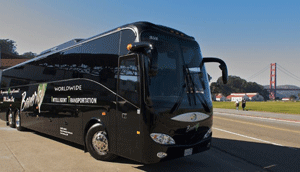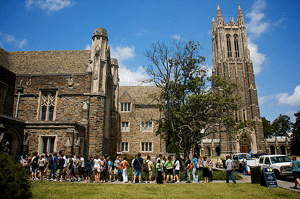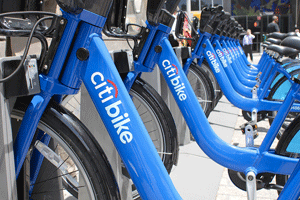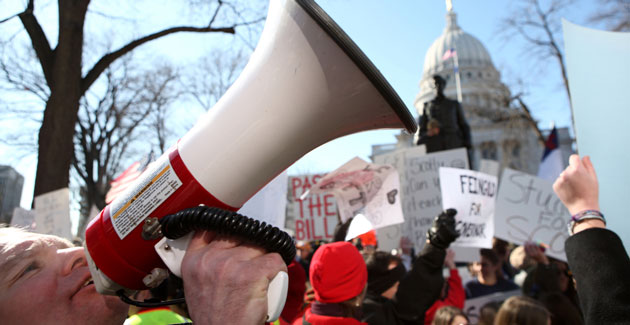
<a href="http://www.shutterstock.com/pic-243450715/stock-photo-united-states-of-america-labor-movement-workers-union-strike-concept-with-male-fists-raised-in-the.html?src=oc0YWxr4Eca-nXP8EVJkmQ-1-0">Igor Stevanovic</a>/Shutterstock
Fifty years ago, one-third of American workers belonged to a union. Today, it’s 1 in 10. And that number is likely to slip further if, as expected, the Supreme Court weakens public-sector unions, which today account for nearly half of all union members.
Yet despite decades of setbacks, the labor movement still shows signs of life—and not just in its typical blue-collar stomping grounds. Workers across the economy are realizing that unions can help them win better working conditions and higher wages. Here are five industries where unions have made surprising gains:
Digital News Media
Last month, more than 220 writers, editors, and other staffers at the Huffington Post voted to join the Writers Guild of America, East. The guild’s victory followed other successful drives in recent months at Gawker, Salon, ThinkProgress, and Vice Media. Another union, NewsGuild-CWA, last year helped organize the Guardian US and digital staffers at Al Jazeera America.
Although unions have represented many newspaper reporters for decades, they’ve only recently begun to penetrate web-only publications. These fast-growing startups typically woo young writers with the promise of huge audiences and considerable editorial freedom—while offering little in the way of salaries, benefits, or family-friendly scheduling.
But as digital reporters have matured, so have their expectations. “The idea that someone will continue to work all his waking hours is not sustainable,” Bernard Lunzer, president of the NewsGuild, told the journalism site Poynter.org. “If owners are doing well, workers will say, ‘Let’s get a bit more reasonable.'”
Security Firms
Most of America’s 1 million security guards don’t have much security on the job. With scant health benefits and pay that averages just $11 an hour, they are often just one mishap away from disaster.
So some of them are looking to unions for protection. Since 2003, more than 50,000 security guards have won contracts through the Service Employees International Union—often with big improvements in wages, health care, paid time off, and other benefits. In 2015 alone, more than 2,100 security officers in Baltimore, Sacramento, Indianapolis, and Pittsburgh formed unions.
The SEIU has focused primarily on the 60 percent of security guards employed by independent contractors, which tend to pay bottom-of-the-barrel wages. In May, responding to pressure from labor groups, Facebook announced a $15 minimum wage and a new-parent benefit for all its subcontracted workers. Google and Apple recently went even further by bringing their security guards in-house and offering them the same benefits as their other workers.
Tech Shuttle Services
In 2014, private buses for tech workers in the San Francisco Bay Area became potent symbols of inequality and gentrification. Last year, however, they became known for something more positive: union contracts.
It all started last February, when newly unionized drivers employed by Facebook contractor Loop Transportation won a sweetheart contract through Local 853 of the Teamsters. It guaranteed a $9 raise to $27.50 an hour, fully paid family health insurance—a first—up to five weeks of paid vacation, 11 paid holidays, and a pension. “It was just an amazing first contract,” says Doug Bloch, the Teamsters’ Northern California political director. “They were literally catapulted into the middle class overnight.”
The deal sent ripple effects through the Bay Area labor market. The following month, Apple and Google announced a 25 percent raise for all contract shuttle bus drivers. In May, unionized shuttle drivers at the San Francisco Municipal Transportation Agency won a 44 percent wage increase, 25 days off (up from 12), and a 401(k) plan with an employee match.
Other drivers scrambled to join the union, too. In November, Local 853 won a similarly sweet deal for nearly 200 newly organized employees of Compass Transportation, which serves Apple, eBay, PayPal, and Yahoo, among others. Next up on the union’s radar is Bauer’s Intelligent Transportation, a contractor for Twitter, Yelp, Cisco, and Salesforce.
“In the Bay Area there’s a lot of discussion about the intersection between the high-tech economy and income inequality,” says Bloch of the Teamsters. Tech companies “are politically vulnerable for the exact same reason, and that created an opening for us.”
Colleges and Universities
In the 1970s, two-thirds of college and university faculty was tenured and a third was not. Now those percentages are flipped: Nearly half of professors don’t even have full-time jobs. As with other involuntary part-time workers in restaurants or retail, these “adjuncts” often have a hard time making ends meet.
Enter the SEIU’s Faculty Forward campaign. Since launching three years ago, it has won union contracts for more than 10,000 adjunct and nontenured faculty at more than 30 colleges and universities, including Georgetown, Tufts, Boston University, and the University of Chicago. Some profs have seen raises of 30 percent.
In a related campaign, the United Auto Workers is unionizing graduate student workers such as teaching assistants and resident advisers. There are already grad student unions at some 60 public university campuses, but a 2004 National Labor Relations Board ruling has prevented similar unions from forming at private colleges—until now. In 2013, worried that Obama appointees on the NLRB would reverse the Bush-era ruling, New York University agreed to let its grad students form a union. The UAW now has campaigns at Harvard, Columbia, and the New School in New York City—the union also is in talks with students at many other private campuses. The NLRB is expected to revisit its 2004 ruling sometime this year.
Bike Share Companies
In 2013, Citi Bike became the nation’s largest public bike-sharing program after opening 332 bike stations across Manhattan.
“When it first started we didn’t pay much notice,” admits Jim Gannon, a spokesman for the New York local of the Transport Workers Union. “It was just a bunch of bikes.”
But then the union heard from some of the company’s 150 workers—mechanics and “balancers” who make sure that the racks don’t go empty. They joined the TWU in late 2014 and last year won a contract that guarantees parental leave, paid vacation, and 20 percent raises within five years.
The company’s workers in Jersey City, the District of Columbia, Boston, and Chicago soon followed, becoming union members over the next several months. “We kind of take the position that if it’s public and it moves on wheels,” Gannon now says, “it should be TWU and it should be unionized.”











